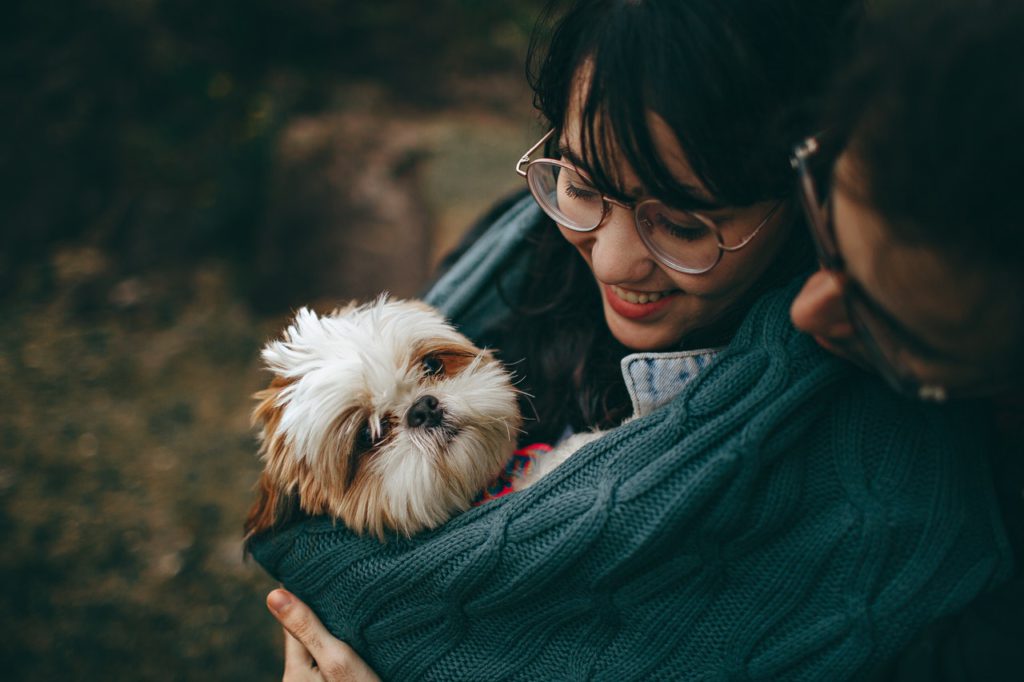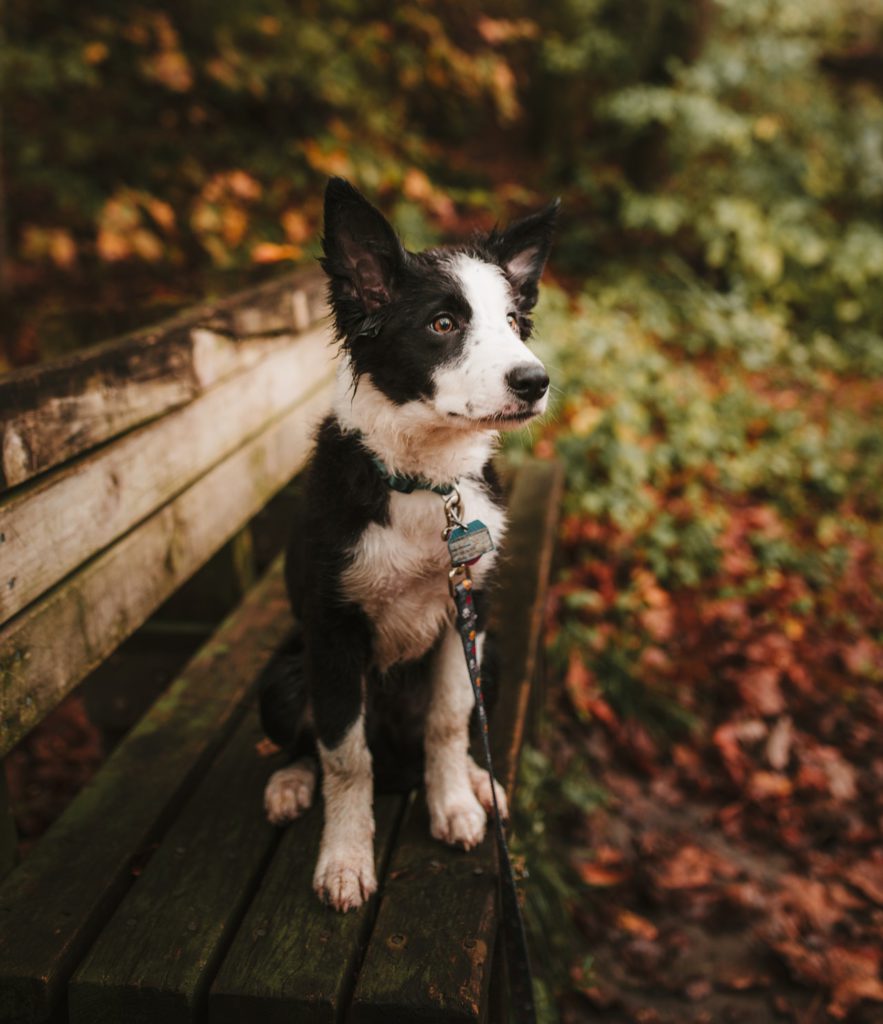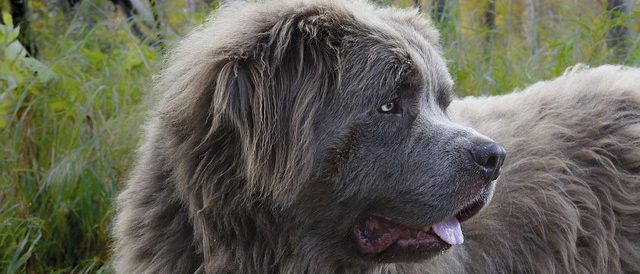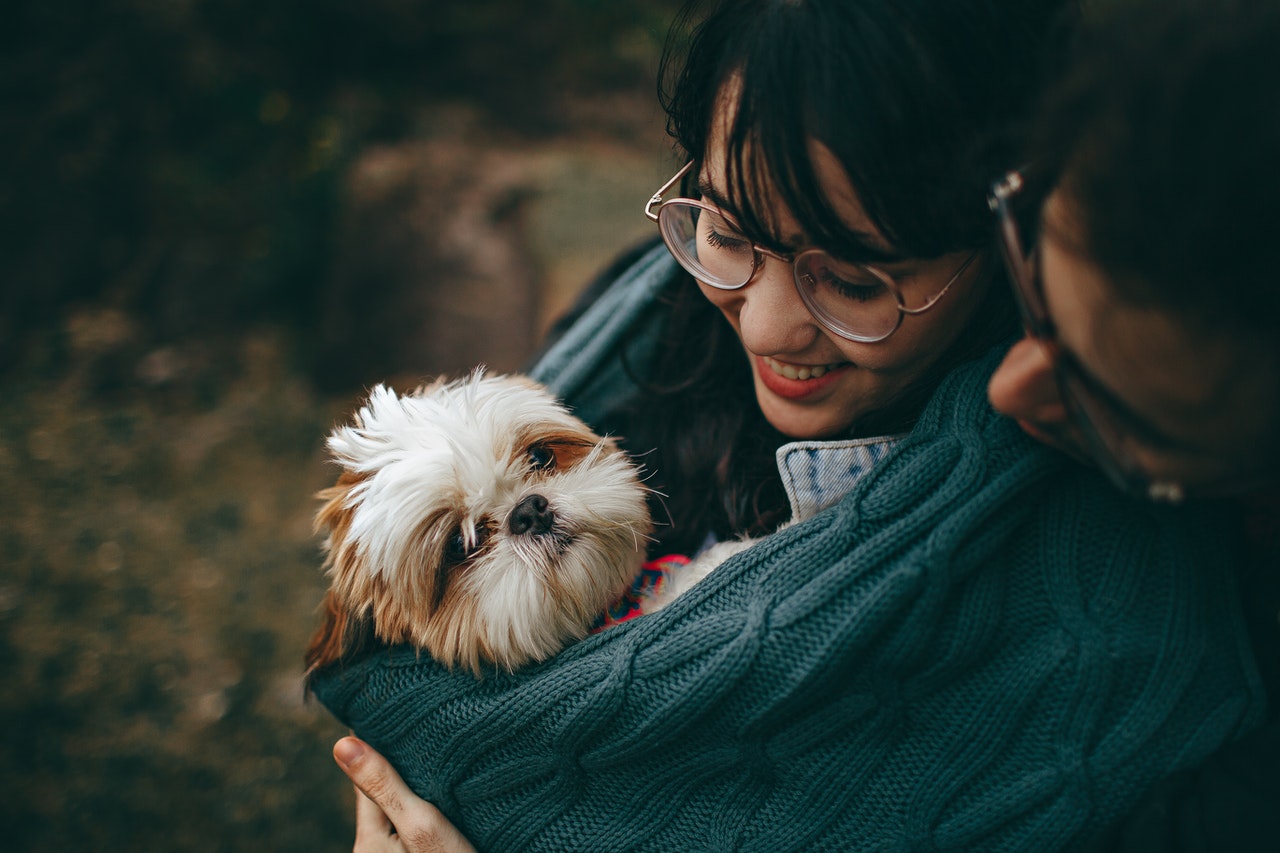Having a puppy in your home will change your life forever. Puppies are a lot of work for an unprepared master. How to take care of a puppy? Here is a text to prepare you for the arrival of your puppy.
Puppy development from 8 to 12 weeks
Most puppies leave their homes between 8 and 12 weeks old, leaving their mother and siblings behind. This is a period of rapid brain development where the puppy is “impressionable” and quite curious. The puppy derives its good and bad behaviors from its experiences and its environment during this critical time.

Physical development
An 8-12 week old puppy is physically vulnerable and a bit awkward. At this age, the puppy should not be left alone overnight for a whole day. Expect your puppy to get a lot of sleep during this stage. Most puppies sleep about 18-20 hours a day to support their brain and body growth. It is the responsibility of the family to ensure that the puppy can get as much sleep as possible. Too often puppy owners tend to exercise their puppy rather than teaching him to land.
Before 12 weeks of age, most puppies will have a hard time controlling their needs. They are prone to frequent accidents and usually cannot go through the night without urinating. An aggravating factor is the puppy left alone overnight. This stresses the puppy to be alone and will therefore cause him to wake up often and therefore to urinate. Stick to a regular schedule, take your puppy outside whenever he eats, drinks, or wakes up after a nap. It is not uncommon for a puppy to not get clean until it is 6 or 7 months old. The more the puppy will be under the pressure of its owners, the greater the risk will be regarding “dirtiness”.
Your puppy will not start having adult teeth until around 12 weeks of age. Some of her baby teeth may start to fall out between 8 and 12 weeks. Your puppy will need something to chew on during this period (toys, etc.).
Behavior changes
From 8 to 12 weeks this period of socialization is critical. This period is often referred to as the “fear stage” because puppies can appear to be afraid of everything. Fear is a normal emotion. However, in some cases, the puppy’s reactions may seem disproportionate. So you can find out more here: Fear in dogs.
During this period, it will then be necessary to make as many positive things as possible. This means rewarding your puppy for exploring new things. However, don’t force your puppy to come to terms with a situation that scares them. He will eventually learn that there is nothing to fear over time.
In addition, you must continue to socialize your puppy to other environments and other people and dogs. This is because if this is not done, your puppy may not get along with other dogs or with humans as he grows up. A dog should be able to meet well-coded congeners throughout his life.
Puppy feeding
By the time you get your new puppy, he should have been eating puppy food for at least a few weeks already. The breeder or adopter must provide you with information on the type of food they eat.
Start with the same diet, if possible. Allow your new puppy to adjust to their surroundings for a few days or weeks before choosing a new food. If you decide to change food, be sure to switch to the new food gradually to avoid gastrointestinal upset.
Your puppy needs the proper nutrition to grow and thrive. Most puppies should eat three times a day or ad libitum to help with growth. But, this is not always possible for health reasons for example.
Education
While a master’s education can help him interact better with his puppy, it’s not in a hurry. Above all, it is essential to establish a bond with your puppy. Being demanding from the first days often breaks the puppy’s confidence. Keep in mind that this is a baby. What he should learn first is:
• Her name
• That he can always trust you
• The reminder
• Knowing how to rest or remain calm
Take it slow, be patient, stay positive, and have fun because he won’t be a puppy all his life. We have training for owners about puppies right here: Training to have a puppy at home.

Choosing the right puppy
Is this the right time for you to have a puppy? Have you ever asked yourself the question? Here are the 10 bad reasons to take a dog!
So you’ve weighed the pros and cons of owning a puppy and decided that now is the time for you to bring a puppy into your home. Congratulations! Now is the time to go find your new little companion.
How big do you want your dog to be? Food, supplies, and medicine are more expensive for larger dogs. Do you want a dog that stays very active into adulthood? How many hours can you devote to it?
If not, tell yourself that every dog is different, even in a breed. Will you have time to care for a dog 365 days a year, several hours a day? Can you meet the specific needs of their individuality (outings, brushing, education, care, sterilization, socialization, sport, etc.)?
If so, you have surely chosen the right puppy! If not, maybe you should pause for a moment and think about what you can do for an individual. There is nothing worse for a dog and its family than not getting along because of unmet needs (behavioral disturbance, destruction, uncleanliness, aggressiveness, etc.).
Where to find a puppy?
Once you have an idea of the type of puppy you want, it’s time to start your research. Finding the right dog for you can take time and investment. But, this is completely normal since you will later be sharing your life with.
You may want to consider adopting a dog. Mixed breed dogs are absolutely wonderful and extremely underrated. In addition, shelters and local associations are often saturated. Also, if you are looking for a particular breed, know that there are now associations specific to virtually all breeds!
Many people have a favorite breed or need to know more precisely what to expect when the dog grows up. Factors such as the size and type of coat are more predictable in a purebred dog. Problems with health, temperament and energy level are somewhat predictable but not guaranteed.
If you choose to buy a purebred dog, you have to be responsible. Look for an experienced dog breeder with an excellent reputation. Avoid backyard breeders. Never buy from pet stores, as their dogs often come from puppy mills. Do not buy dogs in salons.
Prepare your house for a puppy
Before you bring home your cute little fur ball, you need to make sure your home is as safe as possible. Electrical cords, potential plant toxins, and breakable objects should be kept out of reach. Remember that your puppy can jump, climb, chew and scratch, so pack as much stuff as possible. Your puppy will not be aware that destroying is “nonsense”. Destroying is a natural behavior for a dog.
Place one or more baskets. For example one in the living room and another in your bedroom or next door. Be careful, at this age some puppies love to destroy their basket. So, it is better to avoid foam baskets for example. However, keep in mind that the more comfortable the basket, the less tempting your dog will be to go on the sofa. Personally, the sofa is accessible to my dogs. It’s up to you to decide if this is right for you or not. Once the choice is made, you just have to stay consistent so as not to confuse the puppy.
Remember to give him plenty of water, even at night. Indeed, a puppy who cannot satisfy his thirst can quickly become dehydrated and cause kidney problems. If you want to ban certain rooms from the house, just don’t bring your puppy there.
Give your puppy a name
Obviously, you will be using your dog’s name consistently throughout their life. Your choice must therefore be judicious. The dog’s first name should not be used as a “shouting match”. His name is just his name. It must be positive for him. This will partly prevent recall issues later on.
Choose a name that is not too long. It should be easy to say and easy for your puppy to understand. It’s also important that your dog’s name doesn’t look too similar to other names in the house.
You may want to name your puppy something that describes their personality or appearance. You can also choose something unique. Once you’ve chosen a name, make it positive. Stand in front of your puppy say his name “Jack!” and give him a treat. Repeat this exercise a little bit every day.

Keeping Your Puppy Healthy
Preferably, you will find a veterinarian before you have a puppy. A few days after bringing your new puppy home, you should take him to your vet for a general checkup. Take steps to make it a good experience so that your puppy is less likely to fear the vet.
Be careful, no vet of any kind should handle your puppy with violence. This is the best way to get the puppy to react to humans or to hate the vet as they grow older. A vet shouldn’t talk to you about submission or even education. Indeed, it is not his job.
Your vet can help you quickly identify any potential health issues and advise you on long-term care for your dog. The initial visit also opens the doors to communication with you and your veterinarian. To help cut down on your puppy’s expenses, you may want to consider purchasing pet health insurance. Your vet will become a lifelong partner for your puppy, so choose him wisely!
Puppy socialization
Socializing a puppy teaches them to feel comfortable in the environment they share with you, but also with others. This is often an overlooked aspect of unsuspecting homeowners. Yet, if all puppies were positively and progressively socialized, humans would face fewer annoying dog behaviors.
Socializing your puppy means making him understand that:
• Humans can be respectful
• Other dogs are not necessarily a danger
• That the environment in which he lives is great, especially if his owner is present.
Bond with your puppy
The bond you have with your puppy begins the moment he enters your life. You can maintain this bond through affection, educational training, grooming, games, and participation in various activities. Caring for someone else means choosing to devote yourself to their well-being. Your puppy did not choose to come and live with you. So it’s up to you to prove to him that his new family is worth it!




